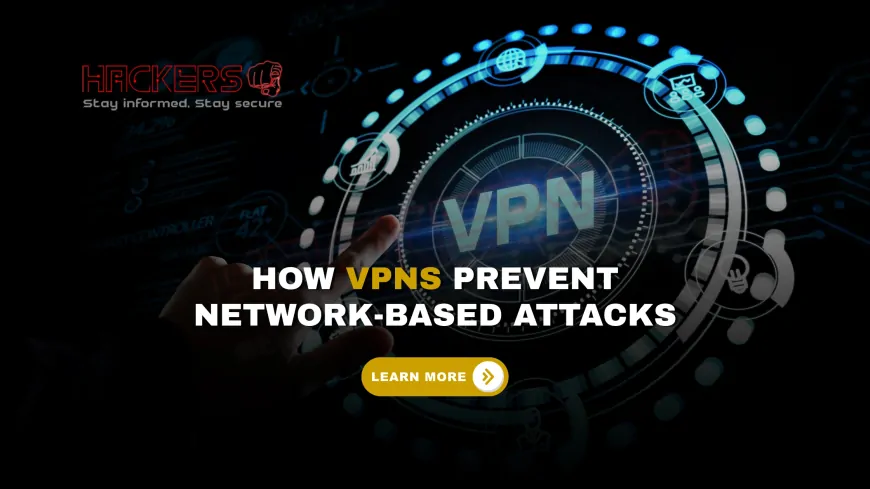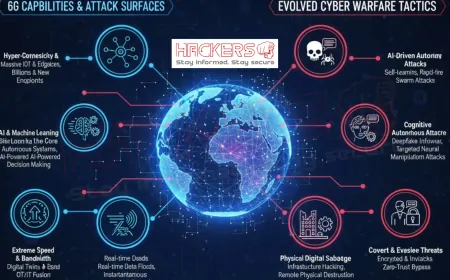How Do VPNs Protect Against Network-Based Attacks?
Picture yourself at a cozy café, sipping coffee and browsing the internet on their free Wi-Fi. It feels convenient, but there’s a catch: public networks like these are a playground for cybercriminals. From stealing your passwords to intercepting your emails, network-based attacks are a real threat. That’s where Virtual Private Networks (VPNs) come in. As someone who’s navigated the ups and downs of online security, I can tell you that a VPN is like a digital shield, keeping your data safe from prying eyes. In this blog, we’ll explore how VPNs protect against network-based attacks, break down the threats they counter, and share practical tips for organizations and individuals. Whether you’re new to tech or a seasoned user, this guide will help you understand why a VPN is a must-have in today’s connected world.

Table of Contents
- What Is a VPN?
- Common Network-Based Attacks
- How VPNs Protect Against Network-Based Attacks
- Benefits of VPNs for Organizations
- How to Choose a Secure VPN
- Conclusion
- Frequently Asked Questions
What Is a VPN?
A Virtual Private Network (VPN) is a tool that creates a secure, encrypted connection between your device and the internet. Think of it as a private tunnel through which your data travels, safe from anyone trying to peek in. When you connect to a VPN, your data is encrypted, and your real IP address is hidden, making it harder for attackers to track or intercept your online activities. VPNs are especially useful on public Wi-Fi networks, like those in cafés or airports, where security is often weak.
For organizations, VPNs allow employees to securely access company resources from remote locations. For individuals, they provide privacy and protection against network-based attacks. But what exactly are these attacks, and how do VPNs stop them? Let’s dive in.
Common Network-Based Attacks
Network-based attacks target the data flowing through a network, often exploiting weaknesses in unsecured connections. Here are the most common types:
- Packet Sniffing: Attackers capture data packets to steal sensitive information, like login credentials or credit card details, especially on unencrypted networks.
- Man-in-the-Middle (MITM) Attacks: Hackers intercept communication between your device and a server, allowing them to eavesdrop or alter data.
- Evil Twin Attacks: Attackers set up fake Wi-Fi hotspots that mimic legitimate ones to trick users into connecting and exposing their data.
- ARP Spoofing: This technique tricks devices into sending data to an attacker’s device instead of the intended destination, often on wired networks.
- DNS Spoofing: Attackers redirect your web traffic to fake websites that steal your information or deliver malware.
These attacks thrive on unsecured networks, making tools like VPNs critical for protection. Let’s explore how VPNs counter these threats.
How VPNs Protect Against Network-Based Attacks
VPNs are powerful because they address the core vulnerabilities exploited by network-based attacks. Below is a table summarizing how VPNs counter specific threats, followed by detailed explanations.
| Attack Type | How VPNs Protect | Outcome |
|---|---|---|
| Packet Sniffing | Encrypts data packets, making them unreadable. | Attackers can’t access sensitive information. |
| Man-in-the-Middle (MITM) | Secures the connection with end-to-end encryption. | Prevents interception or data manipulation. |
| Evil Twin Attacks | Encrypts data even on fake hotspots. | Protects data from being stolen. |
| ARP Spoofing | Encrypts traffic, rendering spoofed data useless. | Blocks attackers from reading redirected packets. |
| DNS Spoofing | Routes traffic through secure VPN servers. | Prevents redirection to malicious sites. |
Packet Sniffing: A VPN encrypts your data packets using strong protocols like AES-256, turning readable information into a scrambled code. Even if an attacker captures your packets, they can’t decipher them without the encryption key.
Man-in-the-Middle (MITM) Attacks: By creating an encrypted tunnel between your device and the VPN server, a VPN ensures that intercepted data remains unreadable. This blocks attackers from eavesdropping or altering your communications.
Evil Twin Attacks: Even if you connect to a fake Wi-Fi hotspot, a VPN encrypts your data before it leaves your device. This means attackers can’t steal your information, even on a malicious network.
ARP Spoofing: VPNs encrypt all outgoing traffic, so even if an attacker redirects your packets, they can’t read the contents. This neutralizes the impact of ARP spoofing on your data.
DNS Spoofing: VPNs route your DNS requests through their secure servers, bypassing local networks that might be compromised. This prevents attackers from redirecting you to fake websites.
Beyond encryption, VPNs hide your IP address, making it harder for attackers to target your device or track your activities. This added layer of anonymity is a powerful defense against network-based attacks.
Benefits of VPNs for Organizations
For organizations, VPNs are more than just a security tool—they’re a business necessity. Here’s how they help:
- Secure Remote Work: With employees working from home or on the go, VPNs ensure secure access to company networks, protecting sensitive data.
- Data Protection: VPNs safeguard customer information, financial records, and trade secrets from network-based attacks.
- Regulatory Compliance: Encrypted connections help organizations meet data protection regulations like GDPR or HIPAA.
- Cost-Effective Security: Compared to data breaches, which can cost millions, VPNs are an affordable way to enhance security.
- Employee Privacy: VPNs protect employees from attacks on public Wi-Fi, ensuring safe browsing during business travel.
A small business I advised implemented a VPN for their remote team and saw immediate benefits: no more worries about employees using risky public Wi-Fi, and a boost in confidence for handling sensitive client data.
How to Choose a Secure VPN
Not all VPNs are created equal. To maximize protection against network-based attacks, organizations and individuals should choose a VPN carefully. Here are key factors to consider:
- Strong Encryption: Look for VPNs using AES-256 encryption, the industry standard for security.
- No-Logs Policy: Choose a VPN that doesn’t store your browsing data to ensure privacy.
- Kill Switch: A kill switch cuts your internet connection if the VPN drops, preventing data leaks.
- Reputable Provider: Opt for well-known VPN providers with a track record of reliability and transparency.
- Server Locations: More server locations mean better performance and flexibility for bypassing geo-restrictions.
- Support for Multiple Devices: Ensure the VPN works on all your devices, from laptops to smartphones.
Before subscribing, check user reviews and test the VPN’s performance. A good VPN should balance security, speed, and ease of use.
Conclusion
Network-based attacks like packet sniffing, MITM, and evil twin attacks are a growing threat in our hyper-connected world. Without protection, your data is like an open book on an unsecured network. VPNs offer a powerful solution by encrypting your data, hiding your IP address, and routing traffic through secure servers. For organizations, VPNs ensure secure remote work, protect sensitive data, and help meet regulatory requirements. For individuals, they provide peace of mind when using public Wi-Fi. By choosing a reliable VPN and following best practices, you can shield yourself from network-based attacks and browse with confidence. Don’t wait for a data breach to take action—secure your connection today.
Frequently Asked Questions
What is a VPN?
A VPN creates a secure, encrypted connection between your device and the internet, protecting your data from attackers.
How does a VPN prevent packet sniffing?
A VPN encrypts data packets, making them unreadable to attackers who capture them.
Can a VPN stop man-in-the-middle attacks?
Yes, a VPN’s encryption prevents attackers from intercepting or altering your data during an MITM attack.
Are VPNs effective against evil twin attacks?
Yes, VPNs encrypt your data even on fake Wi-Fi hotspots, preventing attackers from stealing it.
Can a VPN protect against ARP spoofing?
A VPN encrypts traffic, so even if packets are redirected, attackers can’t read the contents.
How does a VPN prevent DNS spoofing?
VPNs route DNS requests through secure servers, bypassing compromised local networks.
Do I need a VPN on my home network?
A VPN is less critical at home if your network is secure, but it’s essential on public Wi-Fi.
Can a VPN protect my organization’s data?
Yes, VPNs encrypt sensitive data, ensuring secure remote access and compliance with regulations.
What is AES-256 encryption?
AES-256 is a strong encryption standard used by VPNs to scramble data, making it nearly impossible to crack.
Does a VPN slow down my internet?
A VPN may slightly reduce speed due to encryption, but a good provider minimizes this impact.
What is a VPN kill switch?
A kill switch disconnects your internet if the VPN fails, preventing unencrypted data from leaking.
Can a VPN hide my IP address?
Yes, a VPN masks your real IP address, making it harder for attackers to track you.
Are free VPNs safe to use?
Free VPNs may lack strong encryption or log your data, so paid, reputable VPNs are safer.
How do I know if a VPN is secure?
Look for AES-256 encryption, a no-logs policy, and a kill switch, and check reviews for reliability.
Can a VPN protect my mobile device?
Yes, VPNs work on smartphones and tablets, encrypting data on any network.
Do VPNs work on all types of networks?
Yes, VPNs protect data on Wi-Fi, cellular, and wired networks, though Wi-Fi is the most vulnerable.
Can a VPN help with remote work?
Yes, VPNs allow employees to securely access company networks from anywhere.
Do VPNs protect against all cyber attacks?
No, VPNs focus on network-based attacks but won’t stop malware or phishing unless combined with other tools.
How often should I update my VPN software?
Keep your VPN software updated to the latest version to ensure it has the latest security patches.
Can I use a VPN for personal and business use?
Yes, many VPNs support both, but organizations may need business-grade VPNs for advanced features.
What's Your Reaction?










































































